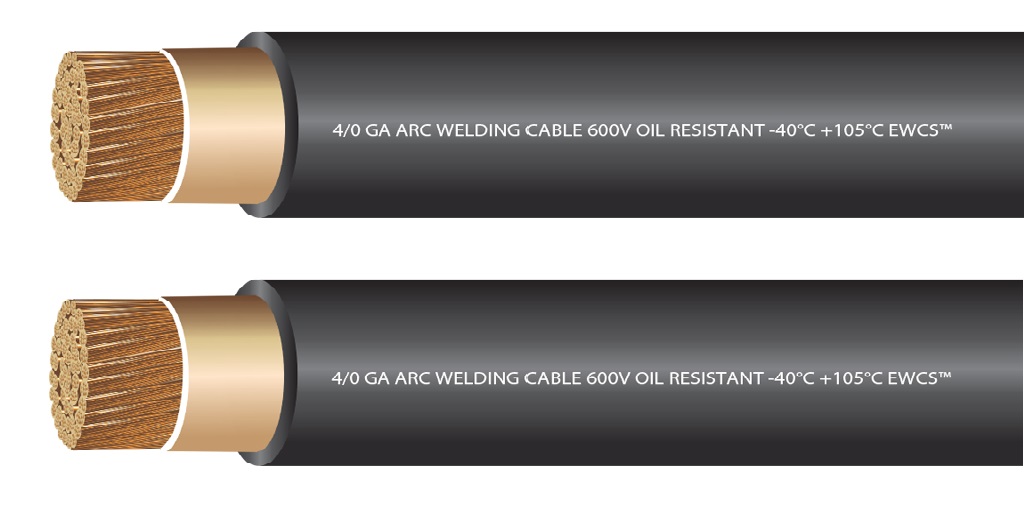Ever wonder why your welding machine sputters and struggles when you’re using a seemingly ordinary extension cord? The culprit might be lurking in plain sight – your welding cable.
Unlike everyday cords, welding cables are specially designed to handle the high currents and intense heat generated during the welding process. But within the world of welding cables, thickness matters, and understanding welding cable gauge is crucial for achieving optimal performance and safety.
Decoding the Gauge: A Matter of Size and Capacity
Welding cable gauge refers to a numbering system that indicates the diameter of the conductor, the part of the cable that carries electricity. The smaller the gauge number, the thicker the cable and the higher its current-carrying capacity, also known as amperage. This might seem counterintuitive, but think of it like water pipes – a wider pipe can handle a greater flow of water compared to a narrower one.
For example, a 4/0 welding cable, often used in heavy-duty applications, is significantly thicker and can handle much higher currents compared to a 10-gauge cable, commonly found in household appliances. This difference in gauge directly impacts how your welding machine functions.
The Thicker, the Better: Why Gauge Matters
Using a cable with an inadequate gauge for your welding project can have several negative consequences:
● Reduced Power: If the cable is too thin, it can’t handle the current needed by your welder, leading to reduced power output and poor weld quality. You might experience spatter, incomplete welds, or difficulty striking an arc.
● Overheating: An overloaded cable will struggle to conduct electricity effectively, leading to excessive heat buildup. This can damage the cable insulation, potentially leading to electrical shorts and even fire hazards.
● Voltage Drop: As current travels through a thin cable, some voltage is lost due to resistance. This voltage drop can further reduce the power reaching your welder and impact performance.
Selecting the Right Gauge: Matching Your Needs
Choosing the right welding cable gauge is essential for safe and efficient welding. Here are some key factors to consider:
● Welding Machine Amperage: The amperage rating of your welding machine should be the minimum acceptable for the cable you choose. Always consult your machine’s manual for specific recommendations.
● Cable Length: Longer cables experience more resistance, so a larger gauge might be necessary to compensate for the voltage drop.
● Welding Application: Different welding processes generate different currents. For example, a stick welder typically requires a thicker cable compared to a MIG welder for the same amperage rating.
For a simpler comparison, you can look at this breakdown:
● Higher gauge (thicker cables): Can handle higher amperage but are heavier, more expensive, and less flexible, making them ideal for stationary equipment and high-current applications.
● Lower gauge (thinner cables): Offer lighter weight, better flexibility, and lower cost but have a lower amperage capacity, making them suitable for lower-current applications and portable equipment.
EWCSwire offers a wide range of high-quality welding cables, including the 4/0 Gauge Premium Extra Flexible Welding Cable. This cable boasts a nominal diameter of 0.72 inches, making it ideal for heavy-duty applications requiring high amperage. Additionally, it’s made in the USA with 2014 strands of 100% copper for superior conductivity and flexibility.
Thinner Isn’t Always Better – Weld with 4/0 Welding Cables
Remember, welding cable gauge plays a crucial role in ensuring successful and safe welding. By understanding the relationship between gauge, diameter, and amperage, you can select the right cable for your needs, guaranteeing optimal performance, protecting your equipment, and most importantly, ensuring your safety.
So, the next time you reach for a cable, remember – choose wisely, weld confidently. Explore the wide selection of welding cables at EWCSwire and experience the difference quality makes.



